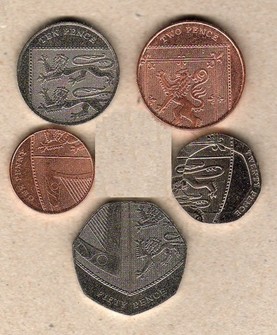Hdu 3951 Coin Game【对称博弈】
来源:互联网 发布:js 随机掉落 编辑:程序博客网 时间:2024/06/13 13:26
Coin Game
Time Limit: 2000/1000 MS (Java/Others) Memory Limit: 32768/32768 K (Java/Others)Total Submission(s): 1997 Accepted Submission(s): 1117
Problem Description
After hh has learned how to play Nim game, he begins to try another coin game which seems much easier.

The game goes like this:
Two players start the game with a circle of n coins.
They take coins from the circle in turn and every time they could take 1~K continuous coins.
(imagining that ten coins numbered from 1 to 10 and K equal to 3, since 1 and 10 are continuous, you could take away the continuous 10 , 1 , 2 , but if 2 was taken away, you couldn't take 1, 3, 4, because 1 and 3 aren't continuous)
The player who takes the last coin wins the game.
Suppose that those two players always take the best moves and never make mistakes.
Your job is to find out who will definitely win the game.

The game goes like this:
Two players start the game with a circle of n coins.
They take coins from the circle in turn and every time they could take 1~K continuous coins.
(imagining that ten coins numbered from 1 to 10 and K equal to 3, since 1 and 10 are continuous, you could take away the continuous 10 , 1 , 2 , but if 2 was taken away, you couldn't take 1, 3, 4, because 1 and 3 aren't continuous)
The player who takes the last coin wins the game.
Suppose that those two players always take the best moves and never make mistakes.
Your job is to find out who will definitely win the game.
Input
The first line is a number T(1<=T<=100), represents the number of case. The next T blocks follow each indicates a case.
Each case contains two integers N(3<=N<=109,1<=K<=10).
Each case contains two integers N(3<=N<=109,1<=K<=10).
Output
For each case, output the number of case and the winner "first" or "second".(as shown in the sample output)
Sample Input
23 13 2
Sample Output
Case 1: firstCase 2: second
题目大意:
给你排成一圈N个硬币,每次可以连续拿相邻位子上的K个硬币出来,问先手赢还是后手赢。
赢的玩家是拿走最后一枚硬币的玩家。
思路:
对称性博弈,如果N%2==0.那么一定是后手赢,因为要将硬币排成一个圆,如果先手有的拿,那么后手对称着到圆的另一侧去拿即可。
如果N%2==1.如果此时k==1.那么一定是先手赢。
如果此时k>1,那么同理也一定可以构成后手对称的情况,所以后手一定也是赢的。
Ac代码:
#include<stdio.h>#include<string.h>using namespace std;int main(){ int t; int kase=0; scanf("%d",&t); while(t--) { int n,k; scanf("%d%d",&n,&k); printf("Case %d: ",++kase); if(k>=n) { printf("first\n"); continue; } if(n%2==0) { printf("second\n"); } else { if(k==1)printf("first\n"); else printf("second\n"); } }} 0 0
- hdu 3951 Coin Game(对称博弈)
- Hdu 3951 Coin Game【对称博弈】
- HDU 3951 Coin Game(博弈取对称思路)
- hdu 3951 Coin Game (博弈创建对称局势)
- hdu 3951 博弈 Coin Game
- 对称博弈(coin game)
- JAVA hdu 3951 Coin Game(博弈)
- HDU 3951 Coin Game 简单博弈
- HDU 3951 Coin Game (博弈)
- HDU 3951 Coin Game(博弈)
- HDU 3951 Coin Game (博弈)
- HDU 3951 Coin Game(博弈)
- 博弈论 (简单博弈分析)——Coin Game ( HDU 3951 )
- HDU 3951 Coin Game(博弈水题)
- HDOJ 3951 Coin Game 博弈
- ACM-对称博弈之Coin Game——hdu3951
- HDU 3951 Coin Game
- HDU:3951 Coin Game
- JavaBean
- 先谋生,再追梦
- 30:滑雪
- mac下使用astah画UML图
- 紫书章六例题10 下落的树叶 UVA 699 (根据前序遍历建树)
- Hdu 3951 Coin Game【对称博弈】
- 以太网进化历程半景-从10Mbps到1Tbps
- 用最有效率的方法算出2乘以8等於几?
- 浅谈NGUI的渲染原理
- 《大型网站技术架构 核心原理与案例分析》读书笔记
- java的优势
- 包含中文字符的NSString转换为NSURL结果为nil解决方法
- 4821: [Sdoi2017]相关分析
- 美国各州州名及首府


